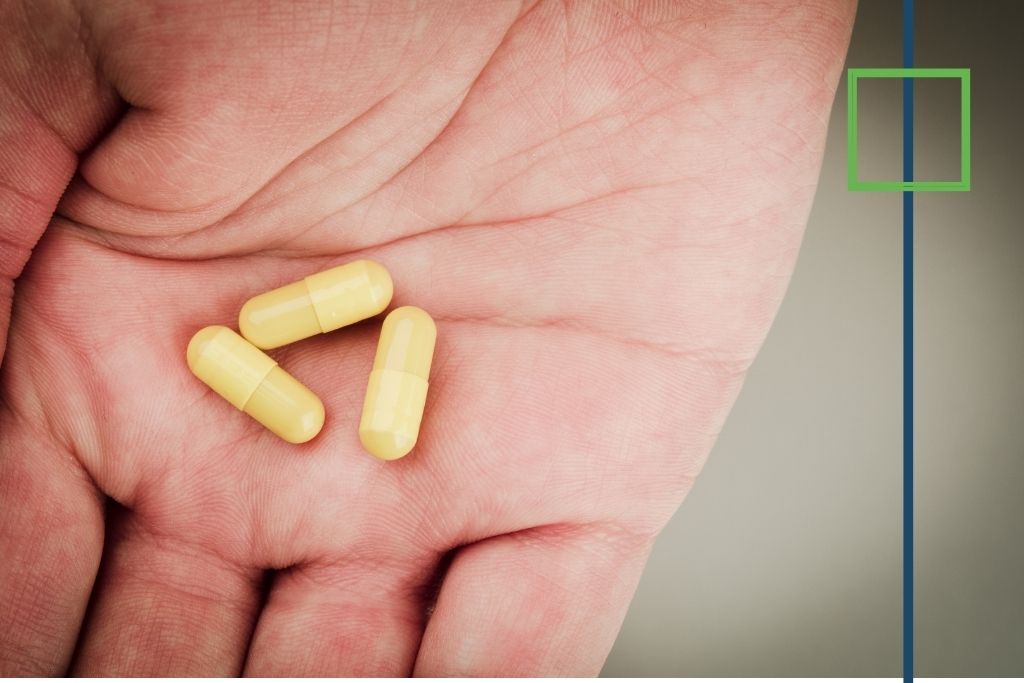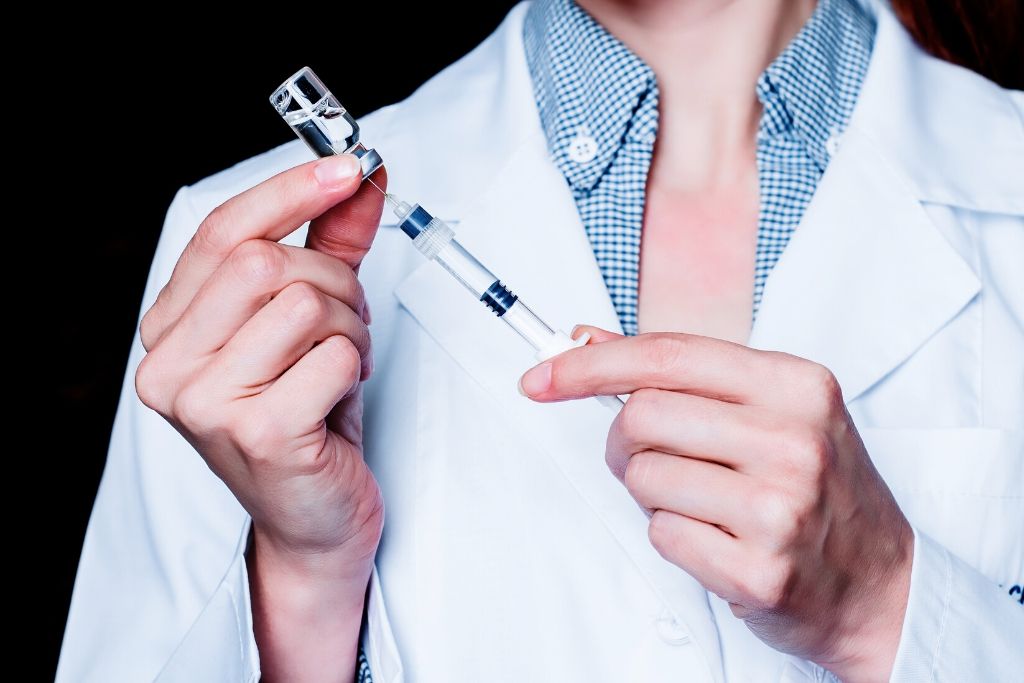How Long Does it Take to Feel the Effects of Amphetamine?
The amphetamine effects can last different lengths depending on the drug used. The effects of these drugs generally last for about 4–6 hours. However, some prescription formulations last much longer. For instance, Adderall XR (extended-release) contains beads that slowly release the active ingredient over 8–12 hours [1].
Vyvanse works for about 8–12 hours but has unique pharmacology. The molecule is dextroamphetamine attached to the amino acid, lysine. When Vyvanse enters the body, proteins in the blood cleave off the lysine molecule and leave active dextroamphetamine.
Methamphetamine causes peak effects within a few hours after use and can last between 8–12 hours for most people regardless of the method of administration.

Amphetamines are highly addictive. The Drug Enforcement Agency (DEA) [2] has categorized them as Schedule II controlled substances. It means they have high abuse potential but also have medical uses. Amphetamine increases dopamine, the brain’s reward chemical. As tolerance increases, this can lead to taking higher doses to attain the same effect. This increases the likelihood of dependence. Long-term use of these drugs can lead to amphetamine addiction. Addiction to these drugs is devastating for interpersonal relations and adversely impacts work life. Stopping consumption after long-term use results in amphetamine withdrawal symptoms.

Get Your Life Back
Find Hope & Recovery. Get Safe Comfortable Detox, Addiction Rehab & Mental Health Dual Diagnosis High-Quality Care at the We Level Up Treatment Centers Network.
Hotline (877) 378-4154Amphetamines Half-Life
Half-life is one way to tell how long a drug stays in your system. Knowing about the half-life of amphetamines will help you answer the question, “How long do amphetamines stay in your system?” Half-life is the amount of time it takes for a drug to drop to half its maximum concentration after it is taken. After five half-life cycles, most drugs are almost completely removed from the body.
The half-life of an amphetamine drug is how long it takes the body to break half of it down. For instance, a person who takes 10 mg of dextroamphetamine will have 5 mg still in their body 12 hours later, 2.5 mg 24 hours later, and so on.
Half-lives for common amphetamines are:
- Amphetamine Salts: 10–13 hours
- Dextroamphetamine: 12 hours
- Vyvanse (Lisdexamphetamine): 1 hour, then 12 hours once converted to dextroamphetamine in the body
- Methamphetamine: 10 hours
Vyvanse has two half-lives because it must be converted to its active ingredient, dextroamphetamine, in the body. When someone takes Vyvanse, it takes five hours to convert to dextroamphetamine fully, and the body begins metabolism of dextroamphetamine before all Vyvanse is converted to dextroamphetamine.
Methamphetamine (meth) has a half-life of about ten hours, staying in the blood for fifty hours. However, it may remain in body tissues far longer, not being completely eliminated for 120 hours. The half-life of a drug is almost always longer than the duration of its effects. This is because drugs tend to stay in the body long after their effects have worn off.
Even after 5 half-life cycles, traces of a drug can still be detected in hair, urine, and other specific parts of the body. Many amphetamines have similar half-lives and detection times.
Get Help. Get Better. Get Your Life Back.
Searching for Accredited Drug & Alcohol Rehab Centers Near You? Or Mental Health Support?
Even if you have failed previously, relapsed, or are in a difficult crisis, we stand ready to support you. Our trusted behavioral health specialists will not give up on you. Call us when you feel ready or want someone to speak to about therapy alternatives to change your life. Even if we cannot assist you, we will lead you wherever you can get support. There is no obligation. Call our hotline today.
FREE Addiction Hotline – Call 24/7How Long Do Amphetamines Stay in Your System? – In Your Blood, Urine, Hair & Saliva
Tests can detect amphetamine use on blood, urine, hair, and saliva samples. Standard tests can detect amphetamines for up to four days. Hair tests can detect the drugs for up to 90 days. The detection period for any drug depends on its metabolism rate, the user’s physical condition, and fluid intake. The frequency and method of use play a role in the detection period as well. Hence, detection periods are different for different individuals. The initial cutoff concentrations for testing are 1,000 ng/ml, while the confirmation test is 500 ng/ml. Blood concentration is used to determine if amphetamines were taken as recreational drugs or for therapeutic reasons.
In general, using amphetamines every day will make them stay in the body for longer than a single use. Genetics plays a role as well, but the effects are not predictable. Some modifiable factors that affect how long amphetamines are in the body include:
- Amount used: The more a person uses, the longer it is detectable in a drug test.
- Frequency of use: Taking amphetamines every day will cause the dose to accumulate and stay in the body longer.
- Method of use: The method by which a person uses amphetamines does not play a big role in how long they stay in the system, but it could have a slight impact.
- Age: In general, an older person will metabolize drugs more slowly because their liver and kidneys lose function over time. Amphetamines may last a little longer in older patients.
- Overall health: Amphetamines are mostly metabolized by the liver, so people with liver problems will metabolize it more slowly.
Amphetamine Drug Test for Urine
How long do amphetamines stay in your system? Amphetamine drug test for urine is one of the most common forms of drug testing. Amphetamines can be detected in urine for about three days. Urine PH, or how acidic urine is, can also affect how long a drug stays in urine. Higher pH levels can affect detection times. Diet and substance use can both affect urinary pH.
Amphetamines include illegal stimulants like methamphetamine (meth), and MDMA, prescription drugs like Adderall and Vyvanse. Amphetamine is a commonly used street drug. It makes users feel very alert and have lots of energy. But they can also make users feel very agitated, have delusions and hallucinations, and may cause amphetamine psychosis.
Amphetamine can be dangerous to your health if you take too much. If you have been prescribed this drug, your healthcare provider may use this test to make sure you are taking your dose. Healthcare providers may also order a blood or urine screen for methamphetamine if you come to the ER with signs of a drug overdose. Methamphetamine changes to amphetamine in the body.
Even if you do not use amphetamines, you may need this test to get a job. In addition, if you are a parolee or someone being treated for drug use disorder, you may also need this test to show that you are not using drugs.
How long do amphetamines stay in your system, and why is it important? Companies often use amphetamine drug tests for urine to screen new employees for drugs, including amphetamine. Urine tests cost less than blood tests. But they can be a problem because people have found ways to cheat the test and appear drug-free. Cheating usually involves adding something to the urine sample to change the test results. Some testers watch during the test to prevent cheating.
Your test results may affect your ability to get a driver’s license or a job, join the military, or play certain sports. In some cases, it’s possible to get a positive test result even if you do not take amphetamines. This is called a false positive. Test results may come back positive if you have taken certain antihistamines, nasal inhalers, or cold medicines.
You may also get a false positive if you take certain medicines for depression. These include tricyclic medications, quetiapine, and bupropion. Talk with your healthcare provider about whether the prescription and over-the-counter drugs you take could cause a false positive test result.

Comfortable Facilities & Amenities
High-Quality Addiction & Mental Health Rehabilitation Treatment
Rehab Centers TourRenowned Addiction Centers. Serene Private Facilities. Inpatient rehab programs vary.
Addiction Helpline (877) 378-4154Proven recovery success experience, backed by a Team w/ History of:
15+
Years of Unified Experience
100s
5-Star Reviews Across Our Centers
10K
Recovery Success Stories Across Our Network
- Low Patient to Therapist Ratio
- Onsite Medical Detox Center
- Comprehensive Dual-Diagnosis Treatment
- Complimentary Family & Alumni Programs
- Coaching, Recovery & Personal Development Events
Blood Test for Amphetamines
How long do amphetamines stay in your system? A blood test measures the amount of amphetamine in your system. Blood tests can detect amphetamine metabolites for anywhere between several hours to over a day. In general, amphetamines last in the bloodstream up to 46 hours (almost two days) after use.
Amphetamine salts and dextroamphetamine stay in the blood for about 60 hours. Vyvanse stays in the blood for 5 hours but is quickly converted to dextroamphetamine, so it has an effective time in the body of 65 hours. Drug tests will detect it once it converts to dextroamphetamine. Methamphetamine is detectable in the blood for about 25 hours.
Amphetamine metabolites do not stay in the blood. Once their concentration goes down, they tend to leave the bloodstream to be excreted. Blood tests often require invasive methods, which may be too uncomfortable for some people. Blood tests tend to be less popular than other types of drug tests. However, blood tests are seen as more accurate than urine tests, but the detection window tends to be shorter.
Amphetamine Hair Drug Test
How long do amphetamines stay in your system? When drugs are present in the bloodstream, they deposit into hair follicles. As the hair grows, the drug remains locked into the hair until the hair is cut. Amphetamines and other drugs can be detected in hair for roughly 90 days. During a hair test, a piece of hair is cut out and studied. Hair tests can be more reliable in testing for long-term substance abuse.
Hair tests may be biased based on a person’s hair color — darker hair contains more methamphetamine than lighter-colored hair because the drug binds better to melanin in dark hair. Drugs travel from the bloodstream to the hair follicles and can be detected about seven to 10 days after intake. Hair structure, growth rate, melanin content, hygiene, and cosmetic hair treatment may affect the concentration of drugs in the hair.
Amphetamine Drug Saliva Tests
How long do amphetamines stay in your system? Is there a less invasive way of doing the test? Oral fluid tests can detect amphetamines from 24 to 48 hours after intake. Saliva tests are noninvasive, and it is easy to collect samples. In addition, they can detect the parent drug rather than its metabolites and can detect same-day use in some cases.
Using a swab or absorbent pad is the most common way to take a saliva specimen. However, if blood is present in the oral fluid sample, additional blood or urine tests will be required for accuracy. In addition, because a limited amount of saliva is collected for a sample, it may not be possible to perform multiple saliva tests with a single sample.
Amphetamine Withdrawal
When a person has been using amphetamines for a long period of time or at high doses, they are likely to experience psychological and physiological signs and symptoms if they drastically reduce their dose or abruptly quit taking the drug. This is called amphetamine withdrawal syndrome, and it can be challenging to get through without support [3].
Amphetamine withdrawal effects include depression, fatigue, irritability, anxiety, trouble concentrating, and increased appetite. In a worst-case scenario, they negatively impact a person’s mental health to the point of leaving them suicidal or profoundly depressed.
The person initially experiences a “crash” that lasts 1-2 days and then experiences a long period of withdrawal that can last anywhere from five days to several weeks.
Amphetamine Withdrawal Symptoms
Symptoms of amphetamine withdrawal include the following:
- Extreme fatigue
- Disturbed dreams and insomnia
- Increased appetite
- Tremors
- Agitation
- Hallucinations
- Trouble concentrating
- Depression
- Irritability
- Restlessness
- Anxiety
- Headache
- Muscle tension and aches
- Significant drug cravings
- Slowed motor skills and impaired coordination
Amphetamine withdrawal is typically mostly psychological, with mood, thinking, and sleep disturbances, along with difficult cravings, being the most intense symptoms.
When withdrawal effects last longer than two weeks, they are considered protracted or post-acute withdrawal symptoms (PAWS). Chronic users may experience PAWS effects that can last up to a year.

Amphetamines have a profound effect on various parts of the brain. Some of the signs and symptoms of PAWS include:
- Problems with short-term memory
- Impaired ability to focus, concentrate, or maintain attention
- Lack of self-control
- Depression with or without suicidal ideation/behaviors
- Inability to experience pleasure (anhedonia)
- Cravings
- Fatigue
- Sleep problems
- Physical complaints with no medical origin
World-class, Accredited, 5-Star Reviewed, Effective Addiction & Mental Health Programs. Complete Behavioral Health Inpatient Rehab, Detox plus Co-occuring Disorders Therapy.
CALL (877) 378-4154End the Addiction Pain. End the Emotional Rollercoaster. Get Your Life Back. Start Drug, Alcohol & Dual Diagnosis Mental Health Treatment Now. Get Free No-obligation Guidance by Substance Abuse Specialists Who Understand Addiction & Mental Health Recovery & Know How to Help.
Amphetamine Withdrawal Treatment
Numerous treatment options provide help for amphetamine withdrawal. The right type depends on the individual’s level of physical dependence [4]. Amphetamines are stimulant drugs that include prescription medications such as Adderall as well as drugs that are often abused recreationally, such as methamphetamine (crystal meth).
People that use these drugs either therapeutically or recreationally can become physically dependent. Once dependence develops, the person’s system cannot function adequately without the drug, and they will experience withdrawal symptoms if they reduce their intake of the drug or quit using it completely.
A detox treatment program can help manage the physical and psychological symptoms of amphetamine withdrawal. Detox programs usually consist of medical supervision, supportive interventions, and at times, the use of medication to assist with withdrawal.
According to the National Institute on Drug Abuse, detox is only the first step in a process of recovery from drug dependence and addiction. People that are addicted to amphetamines should seek further treatment after they have completed withdrawal, including behavioral therapy and relapse prevention training.
Amphetamines can be extremely difficult to stop using without professional help. Detoxing cold turkey can lead to relapse, agitation, and depression. The right type of program depends on the person’s level of dependence or the severity of the addiction.
Gaining lasting recovery after amphetamine addiction proves difficult and has a long road to wellness. You can achieve this wellness with the right help. You need an array of therapies, programs, and services, such as:
- Medically assisted detox
- Inpatient addiction rehab
- Behavioral therapies, including cognitive behavioral therapy (CBT), and holistic treatment program
- Individual, family, and group counseling as help for family members of drug addicts
- Coping skills and life skills to prevent relapse
- Quality nutrition and medical care
Inpatient drug rehab provides a drug-free place away from obstacles that could trigger your cravings. You typically stay in a treatment center for several weeks and participate in individual and group therapies.
The answer to “How long do amphetamines stay in your system?” lies in the stimulant’s detection period. Knowing the answer can help you better understand how it can impact your health. If someone is addicted to amphetamine because of its intense and often dangerous amphetamine withdrawal symptoms, that person ought to consider inpatient detox. If you or a loved one is struggling with amphetamine addiction, We Level Up NJ addiction specialists are standing by to help.

Experience Transformative Recovery at the We Level Up Treatment Center.
See our authentic success stories. Get inspired. Get the help you deserve.



Start a New Life
Begin with a free call to an addiction & behavioral health treatment advisor. Learn more about our dual-diagnosis programs. The We Level Up treatment center network delivers various recovery programs at each treatment facility. Call to learn more.
- Personalized Care
- Caring Accountable Staff
- Comfortable Amenities
- Licensed & Accredited
- Renowned w/ 5-Star Reviews





